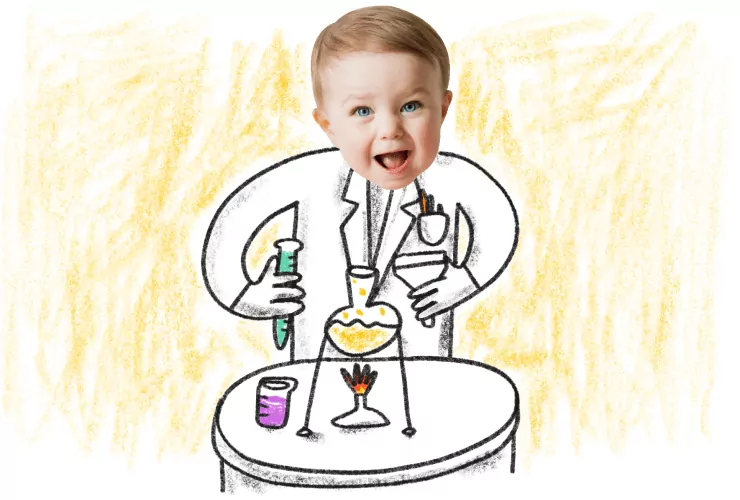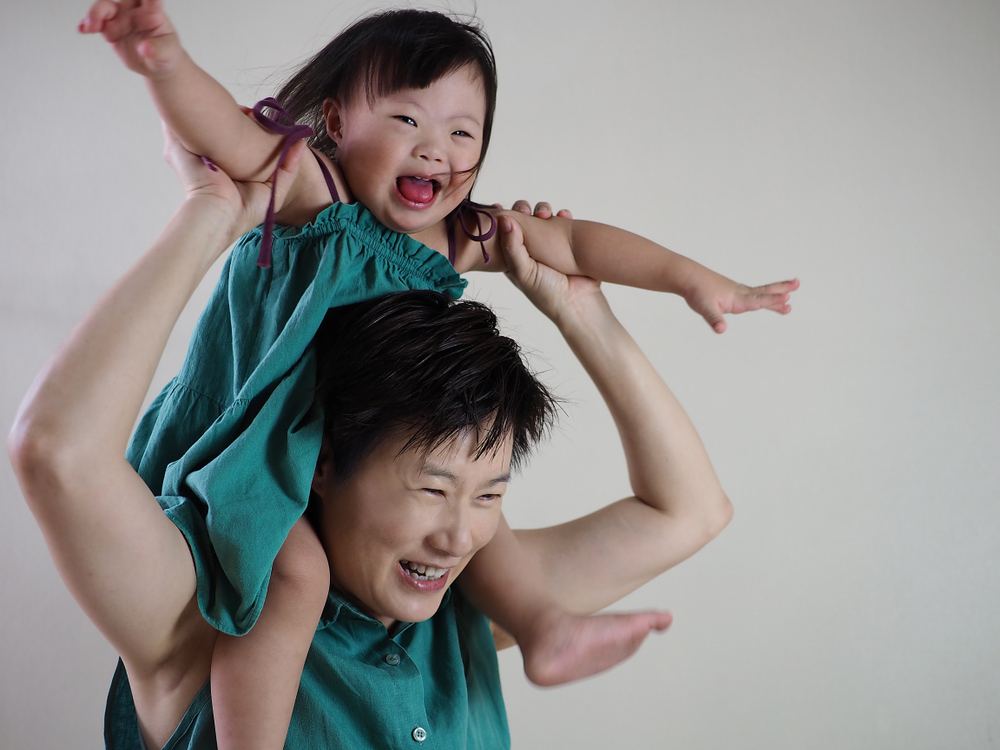How Down Syndrome Affects Children's Speech Development?
Feb 11, 2022 Children who are diagnosed with Down syndrome typically develop speech and language skills at a slower rate than other children. But don’t despair, help is on the way!
In This Article
Even though kids with Down syndrome may struggle, there is a lot of information that has been discovered recently in research and case studies that can help with their speech and language progress.
Also, despite the fact that most individuals with Down syndrome do not speak their first words until age 2-3, they have a desire to communicate long before they can say their first words.
This is where total communication, using sign language, picture boards, and/or electronic devices can serve as transitional communication means.
What is Total Communication?
Total Communication (TC) is the combined use of signs and gestures with speech to teach language.
National Down Syndrome Society
Total Communication provides a child with an output system to communicate when he or she has not yet developed the skills needed for speech. In total communication, adults use sign AND speech when talking with the child.
The child learns signs in conjunction with speech, and uses the signs to communicate. Sign language is a transitional system for children with Down syndrome.
Other choices for transitional communication systems are:
- Pictures used on a communication board or in a communication exchange system.
- Electronic communication systems which use synthesized speech.
A speech-language pathologist and/or augmentative communication specialist (AAC) can help design a transitional communication system for your child. Most children with Down syndrome will use speech as their primary system for communication.
What are the Language Characteristics of Children and Adolescents with Down Syndrome?
Research and clinical experience has shown that some areas of speech and language are more difficult for Down syndrome kids.
Some of these areas include:
- Syntax and morphology, which include grammar, verb tense, word order, word roots, suffixes, and prefixes.
- A Receptive/Expressive Gap is present. When the understanding of language (receptive) is higher than what you can express by oral or written communication (expressive).
An area of strength in kids with Down syndrome regarding language development is their social language skills. They typically have strong pragmatic and vocabulary skills, and often develop a rich and varied vocabulary as they mature. They also have good social interactive skills and use gestures and facial expressions effectively to help themselves communicate.
What are the Speech Characteristics of Children and Adolescents with Down Syndrome?
This is tougher to address because there is a wide range of abilities among children and adolescents who are diagnosed with Down syndrome.
Speech intelligibility (how well speech is understood) is one of the most difficult areas across the board. Many children have difficulty with the strength, timing, and coordination of muscle movements for speech. Also, speech involves coordinating breathing (respiration), voice (phonation), and the production of speech sounds (articulation).
Factors that can contribute to speech intelligibility problems include: articulation problems with specific sounds, low oral-facial muscle tone, difficulty with sensory processing and oral tactile feedback, use of phonological processes (e.g. leaving off final sounds in words), and difficulties in motor planning for speech.
National Down Syndrome Society
What can Parents Do to Help Kids with Down Syndrome Learn Speech?
Parents are the main communicators interacting with their baby/young child, so it’s important they learn skills and strategies to facilitate a positive learning environment.
Activities for learning speech and language
- Remember that language is more than spoken words. When you are teaching a word or a concept, you should focus on conveying meaning to the child through play or through multi-sensory experiences (i.e., hearing, touch, seeing). Also be aware of their body language.
- Provide many models. Be prepared to provide many repetitions because they need lots of experiences to learn a word. Adults should repeat what a child says and give him or her a model to help reinforce a word.
- Use real objects and real situations. When teaching a concept, parents can use daily activities and real situations as much as possible. They can teach the names of foods as their toddler is eating them, the names of body parts while bathing their child, and concepts such as under, in, and on while their child is playing. Communication is a part of daily life.
- Read to their child. You should help their child learn concepts through reading about them, field trips in the neighborhood, and daily experiences.
- Follow their child’s lead. If a child shows interest in an object, person, or event, parents should provide him or her with the word for that concept. There are many milestones as the child progresses toward using speech. They respond to a familiar voice, recognize familiar faces, experiment with many different sounds, produce strings of sounds over and over, and make sounds to refer to his or her parents (like “dada,” or “mama”). Lots of kids like to look in a mirror, and make more and more sound play and babbling when vocalizing in mirrors. Effective ways to work on these skills at home can be learned through early intervention sessions, through books, workshops, and with speech and language professionals.
You can practice these skills at home and in the community. By doing this, you assist your child in learning new communication skills and help them in carrying over their skills into a broad range of situations. When a child has more opportunities to communicate, their skills will expand and grow.
The National Down Syndrome Society
The National Down Syndrome Society is the leading human rights organization for all individuals with Down syndrome. It’s another great resource to make connections in the Down syndrome community.
How Can I Get Help for My Child?
Parents and guardians are often frustrated because they feel their child needs more speech therapy than is being provided in the school system. The downside is that schools have a strict code that they have to follow when it comes to eligibility.
Sometimes eligibility depends on whether a child’s test scores are below those for his or her age; other criteria include the relationship between cognitive and language levels. Parents should make sure they know the eligibility criteria, as well as the federal, state, or local legislation and policies that apply to speech service delivery.
Even though speech pathologists work in schools, they also work in hospitals, rehabilitation centers, private practices, and university clinics. So, parents should look into additional help for their child, when needed.
In addition to speech therapy, download the Speech Blubs app to find tons of great resources and activities that you can work on with your child.
Read here how Speech Blubs is helping children with Down Syndrome.
Speech Blubs App Helps Your Child Catch up!
Make sure to download the Speech Blubs app: available in App Store, Google Play Store, and on our website! Work on imitation and articulation skills, build vocabulary to express needs, and converse more! Set your personalised goals now and start learning.
Speech Blubs is a learning app for everyone: If you want to work on language development or your child has a speech delay, autism, Down syndrome, hearing loss, tongue tie, cleft palate, or Apraxia – kids find this app very helpful. More than 4+ million parents tried the app – see what they have to say about it.
You get free access to Parents Academy and educational videos about speech development in the app. You can even talk to our speech therapist if you have concerns! If you are still unsure, watch our free webinar with speech therapist Tori or join our Facebook Group for parents.
Have a question for our Speech Therapists?




